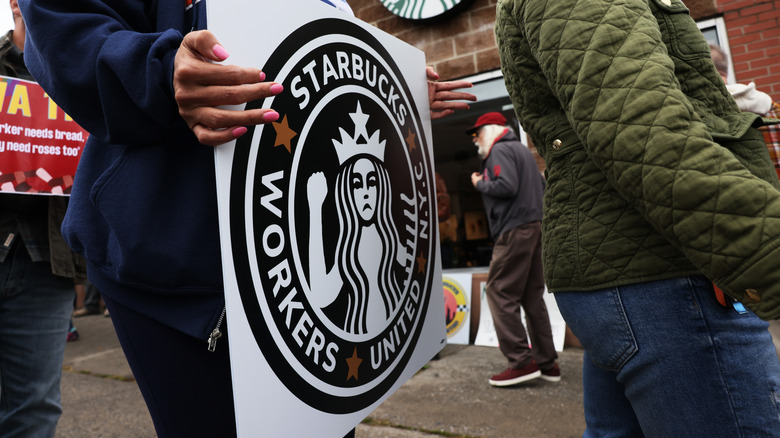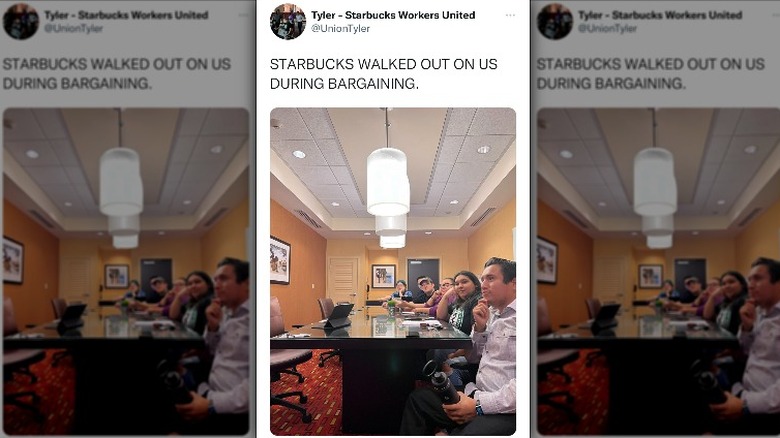Starbucks Union Reps Report Being Left At The Bargaining Table
For somebody with a $3.5B net worth, according to Forbes, Starbucks CEO Howard Schultz is sure taking his employees' complaints about poverty wages pretty personally. On October 8, The Washington Post reported that Schultz held a conference with his top 200 executives to address Starbucks' ongoing unionization struggle, which the corporate side seems to be losing — over 225 stores nationwide have won their union elections.
Schultz asked the crowd at the conference, "Why is this so personal to me? I know what it has taken to build this place. I know what's at stake right now." But, Elise Whisler, a lead union organizer at a Seattle store, says comments like that rub struggling employees the wrong way worst of all. "I don't understand why he's so emotional about all of it," says Whisler, via the news outlet. "That's one of the really frustrating parts ... you're refusing to negotiate with us and painting us as outsiders in your own organization."
The same day, Senator Bernie Sanders took to Twitter to agree: "If you truly respected the workers at Starbucks, sit down with them and negotiate a fair first contract as the law requires," wrote Sanders, which is exactly what Schultz said he was finally ready to do. Last month, CNBC announced a three-week bargaining period would begin in October, during which corporate reps would meet with unionized stores to negotiate. But, now that those meetings have officially begun, they're not going quite the way union workers had hoped.
Corporate reps literally walk out of meetings
Yesterday, a member of Lakewood, CA's Starbucks Workers United called Tyler tweeted a photo of six Starbucks employees sitting along one side of a long conference table. The chairs on the opposite side were notably empty. The photo's caption reads: "STARBUCKS WALKED OUT ON US DURING BARGAINING." This wasn't the only meeting where this happened, either, says news reporter Paul Curst via Twitter. In Buffalo, corporate Starbucks representatives arrived thirty minutes late, left after five minutes to "caucus," and never returned, effectively running out the clock on the bargaining meeting for two and a half hours.
The University of Missouri reports that under normal circumstances caucusing is a standard procedure in collective bargaining. "If there are disagreements about issues or tactics within the committee, those disagreements should be resolved away from the bargaining table," reports the University. For issues that require a lengthier discussion, the caucused topic usually gets tabled so the meeting can proceed with other matters while both parties are present for negotiations. Caucuses are often used "to increase the pace of negotiations." A two-hour-long caucus is far from standard procedure.
In a follow-up Tweet, it was revealed that Starbucks reps repeated the same behavior in at least five total meetings that day: in Buffalo, Lakewood, Chicago, Ann Arbor, and Louisville. "COAST TO COAST, THEY'RE PULLING THE SAME DUMB GAME," Tyler responded, and Starbucks Workers United has no interest in playing.

